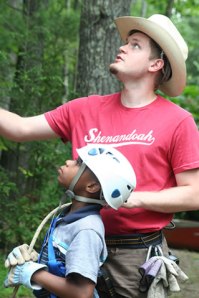 I came home from Preacher Camp a day early, just so I could participate in yesterday’s five-hour attempt to bring some healing to the fractured Richmond Baptist Association. I did it because I care about the Association. I want it to succeed.
I came home from Preacher Camp a day early, just so I could participate in yesterday’s five-hour attempt to bring some healing to the fractured Richmond Baptist Association. I did it because I care about the Association. I want it to succeed.
At one point Bill Wilson, President of the Center for Congregational Health in Winston-Salem, North Carolina, asked us to create an X/Y axis of identity and mission and come up with some clever nicknames for the resulting quadrants (I know; I had a hard time picturing it, too). But eventually someone at our table drew a bold, vertical line down the center of a sheet of newsprint and wrote “Clear understanding of mission” at the top and “No understanding of mission” at the bottom. And then she drew a bold, horizontal line and wrote “No sense of identity” on the left and “Clear sense of identity” on the right.
And then we came up with clever nicknames.
We decided those in the bottom left quadrant were those who didn’t know who they were or what they were doing. We called them “The Clueless.” In the upper left quadrant were those who didn’t know who they were, but knew what they were doing. We called them “The Busy.” In the upper right quadrant were those who knew who they were and what they were doing. We called them “The Focused.” And in the bottom right quadrant were those who knew who they were but didn’t know what they were doing. We called them “The Feel-Good.”
The more we talked about those four quadrants the more obvious it became that the upper right quadrant was the place to be: that a clear sense of identity and a clear understanding of mission were essential to organizational health.
I couldn’t help but think of Richmond’s First Baptist Church in that moment. Who are we? Followers of Jesus. What are we doing? Working with him to bring heaven to earth. Currently, we are working with him on this year-long, every-member mission trip to bring the Kingdom of Heaven to Richmond, Virginia. It couldn’t be much more clear than that, or more compelling.
One of the people at my table said, “That’s what we need: a mission so clear, so compelling, that it moves us from one quadrant to the other.” I think that’s true for every organization. We don’t want to be people who don’t know who they are or what they are doing. We want to be those who know exactly who they are, and exactly what they’re doing. That’s when things get done.
That’s when the Kingdom comes.




